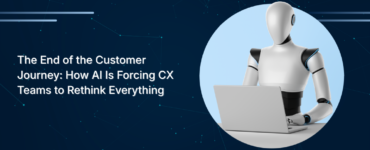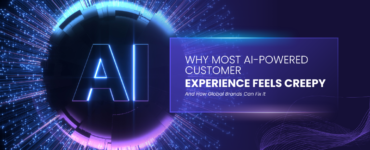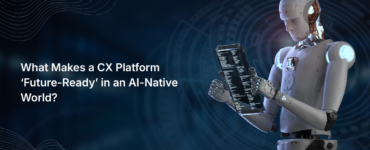Software development is getting faster and more complex every year. Teams are working with tight deadlines, more features, and higher expectations from users. But while everything is speeding up, traditional testing methods haven’t changed much—and that’s becoming a problem. A Capgemini report shows that 63% of companies find it hard to keep up with testing in fast-paced environments like Agile and DevOps.
That’s where AI in software testing is starting to shine. It’s not just a fancy term—it’s helping teams work smarter. AI can create test cases on its own, catch bugs early, and even learn from past test results to make better decisions the next time. It’s like having a smart assistant for your QA team.
Some companies using AI in testing have seen up to 70% faster test runs and found 20–30% more bugs, according to Deloitte. That means faster product releases, fewer issues in production, and better quality overall—without needing a bigger team.
In the next sections, we’ll break down how AI is changing test creation, bug detection, and decision-making in quality assurance.
Why AI is Taking Over Traditional QA
Traditional testing struggles to keep up with the breakneck pace of modern software development. As applications evolve rapidly, test cases become outdated almost overnight. Bugs slip through unnoticed. And QA teams spend countless hours patching brittle, flaky scripts that fail more often than they help.
Artificial Intelligence in QA changes the game by bringing speed, intelligence, and adaptability to the process. It’s not just about automating repetitive tasks—AI can analyze massive test data, spot hidden patterns, adapt to code changes, and continuously refine its approach. This means smarter test coverage, faster feedback loops, and fewer surprises in production.
Think of it as having a tireless QA teammate—one that never sleeps, never misses a bug, and gets more intelligent with every build it touches.
The Real Impact of AI on Software Testing
Artificial intelligence is fundamentally transforming the quality assurance process, making it more efficient, reliable, and scalable. The following sections describe in detail how AI-driven approaches are reshaping traditional testing practices:
Smarter Bug Detection with Predictive Accuracy
AI algorithms leverage historical defect data, system logs, and code‐level behavior to anticipate potential issues before they manifest. By examining patterns in past failures and code changes, these systems can identify high‐risk areas and notify teams early. As a result, development cycles incur fewer unexpected defects in production, and testers can allocate attention to the most critical components.
Machine Learning–Based Test Prioritization
In conventional test suites, every test case is often executed indiscriminately, even if related code has remained unchanged. AI‐powered test prioritization employs machine learning to analyze recent builds, determine which modules have been modified, and assess past test results. Components that have been stable across multiple iterations are deprioritized, while dynamic or high‐risk areas receive immediate focus. This targeted approach reduces execution time without sacrificing thoroughness.
Self-Healing Test Automation
One of the most time-consuming aspects of automated testing is maintaining scripts when user interfaces evolve. Self-healing test frameworks use AI to detect alterations in element locators, button positions, or form fields and adjust assertions automatically. By adapting to UI changes without human intervention, these frameworks significantly reduce script failures and maintenance overhead, allowing testers to concentrate on new functionality rather than script repair.
Intelligent Test Case Generation
Rather than relying solely on manually crafted test cases, AI can generate scenarios by analyzing user behavior metrics, recent code modifications, and business rules. This process yields test cases that reflect actual usage patterns and potential edge cases that might otherwise be overlooked. Intelligent generation ensures higher test coverage, minimizes redundant tests, and uncovers unforeseen failure modes at an earlier stage.
Why Teams are Betting on Test Automation with AI
DevOps and Agile demand fast, continuous releases. Manual testing just can’t keep up. Even traditional automation, while helpful, becomes a bottleneck when test cases require constant maintenance.
With test automation using AI, teams can:
- Run thousands of test cases in minutes
- Adjust tests dynamically without rewriting code
- Integrate QA into CI/CD pipelines more efficiently
- Spot regressions with higher accuracy
- Focus human efforts on strategy instead of firefighting
The Tools Leading the Charge
The rise of AI tools for software testing isn’t limited to theory. Some names to know include:
- Testim.io – Great for self-healing test automation
- Mabl – Easy integration with DevOps pipelines
- Functionize – Uses NLP and ML for scalable, no-code testing
- Applitools – Focused on AI-powered visual testing (think UI bugs)
These platforms are helping teams reduce manual effort while increasing test accuracy and speed.
What the Future of QA with AI Looks Like
We’re heading into a world where QA isn’t just reactive—it’s predictive. The future of QA with AI involves:
- Systems that test themselves
- AI-powered decision-making on release readiness
- Real-time feedback loops based on user interactions
- Risk-based testing that adapts to business impact
In short, AI won’t replace QA engineers. But it will completely transform their role—freeing them up to focus on strategy, user experience, and innovation.
Final Thoughts
The conversation around AI in software testing isn’t about replacing testers—it’s about empowering them. AI takes the repetitive, time-consuming parts of QA and handles them with speed and precision. That means fewer bugs, faster releases, and happier users.
If you’re still relying only on manual or script-based testing, now’s the time to explore what AI-powered software testing can really do. Because in this fast-paced digital race, intelligent testing isn’t optional—it’s essential.
FAQs
1. What exactly is AI in software testing?
It refers to using artificial intelligence and machine learning to automate, optimize, and improve software testing processes, making them smarter and more efficient.
2. How does AI help find bugs?
AI can analyze code patterns, logs, and past bugs to detect vulnerabilities early and even suggest likely root causes—making bug resolution much faster.
3. Will AI replace QA testers?
No. It will automate repetitive tasks, but humans are still crucial for exploratory testing, strategic planning, and final validations.
4. Which tools use AI for QA?
Some popular ones include Testim, Mabl, Functionize, and Applitools—all offering unique AI-driven testing capabilities.
5. What’s next for AI in QA?
Expect smarter automation, continuous learning systems, and real-time quality monitoring that evolves with each release.




